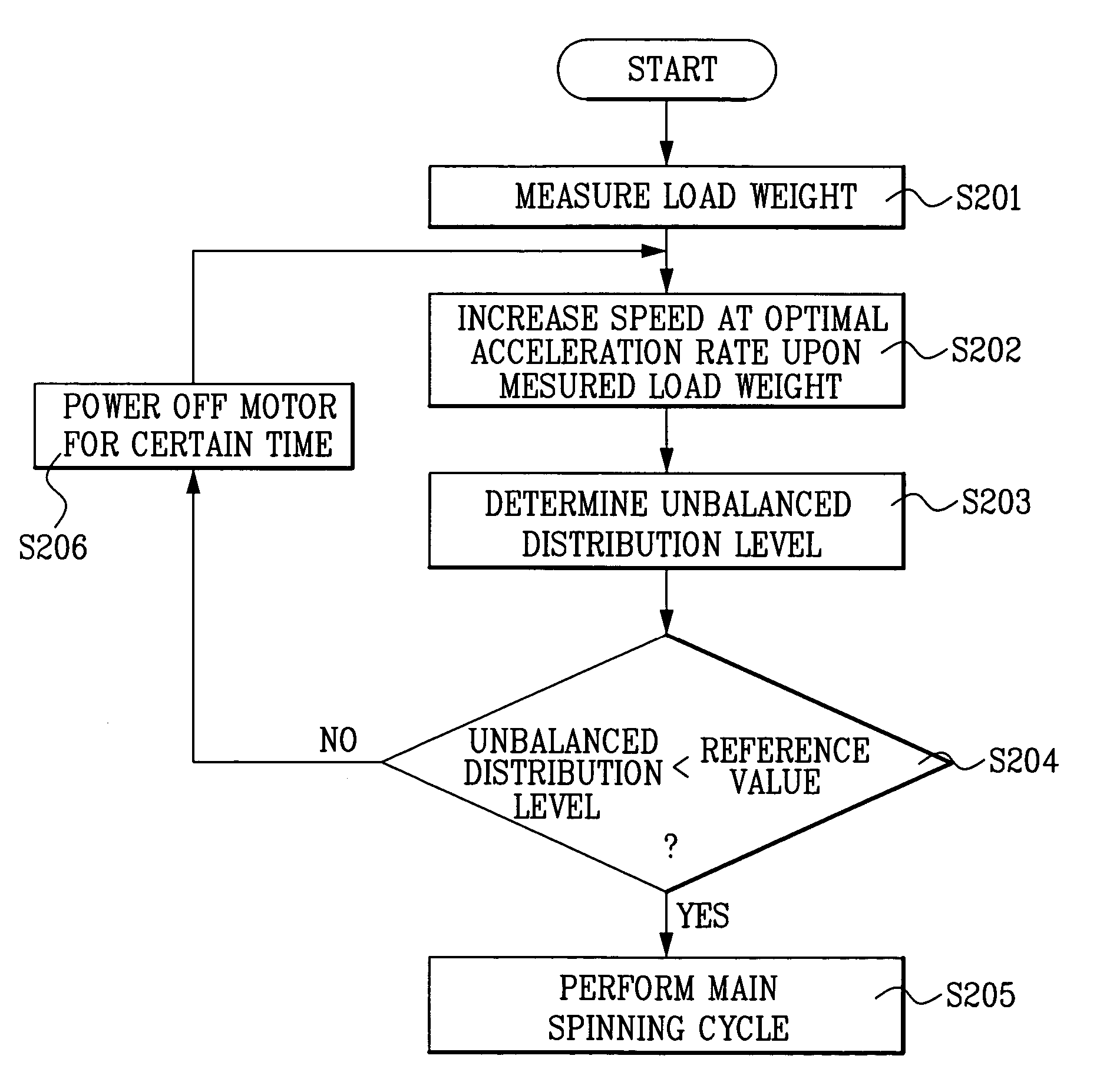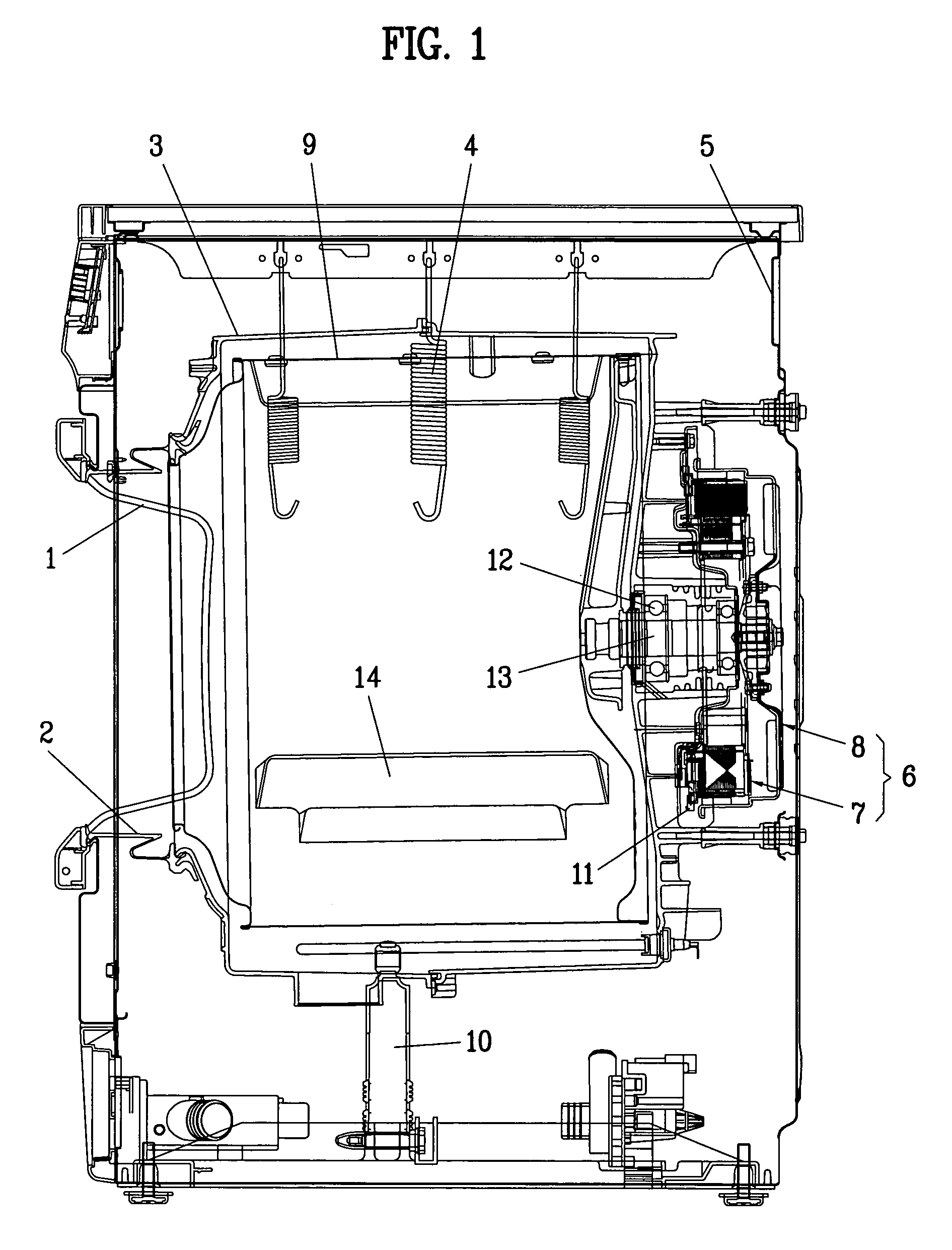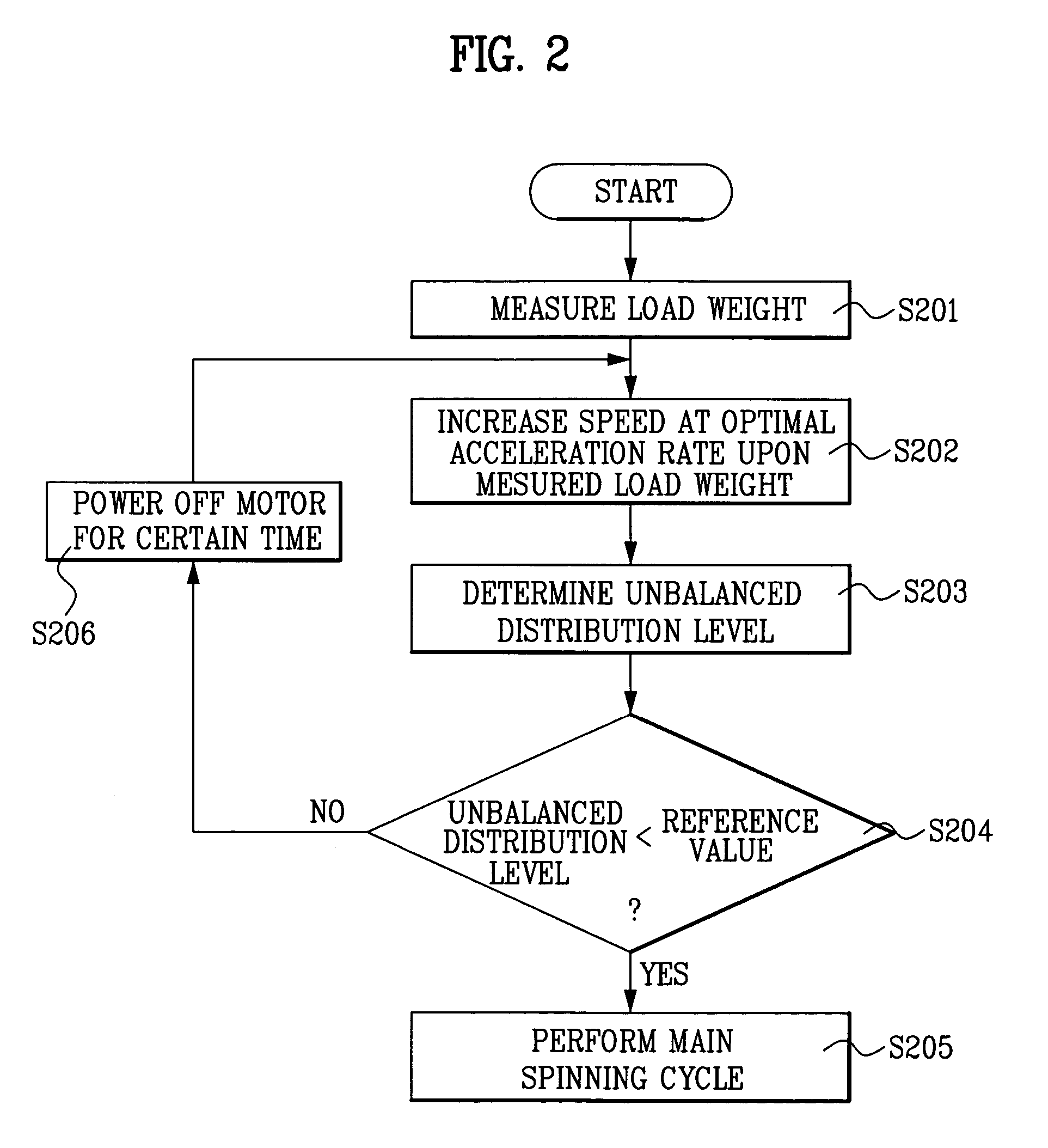Washing machine and method of performing spinning operation
a technology of washing machine and spinning machine, which is applied in the field of washing machines, can solve the problems of inability to accurately calculate the load weight of wet clothes, irregular rotation of the motor, and tangled wet clothes in the washing machine, so as to minimize the unbalanced distribution of wet clothes within the tub, and minimize the unbalanced distribution of wet clothes
- Summary
- Abstract
- Description
- Claims
- Application Information
AI Technical Summary
Benefits of technology
Problems solved by technology
Method used
Image
Examples
Embodiment Construction
[0025]Reference will now be made in detail to the preferred embodiments of the present invention, examples of which are illustrated in the accompanying drawings. Wherever possible, the same reference numbers will be used throughout the drawings to refer to the same or like parts.
[0026]FIG. 1 illustrates a prospective side view of a washing machine in accordance with the present invention. According to FIG. 1, the washing machine includes a cabinet 5, a tub 3, and a drum 9. The drum 9 includes a drum axle 13, which transmits a driving force of a DC motor 6 to the drum 9. For smooth operation of the motor 6, the drum axle 13 is equipped with bearings 12 at its both ends, which are placed in a bearing housing (not illustrated). The motor 6 itself contains a stator 7 and a rotor 8 which is directly connected to the drum 9 and rotates it. The washing machine also includes a hanging spring 4 which functions as a support between an inner top of the cabinet 5 and an outer top of the tub 3. ...
PUM
 Login to View More
Login to View More Abstract
Description
Claims
Application Information
 Login to View More
Login to View More - R&D
- Intellectual Property
- Life Sciences
- Materials
- Tech Scout
- Unparalleled Data Quality
- Higher Quality Content
- 60% Fewer Hallucinations
Browse by: Latest US Patents, China's latest patents, Technical Efficacy Thesaurus, Application Domain, Technology Topic, Popular Technical Reports.
© 2025 PatSnap. All rights reserved.Legal|Privacy policy|Modern Slavery Act Transparency Statement|Sitemap|About US| Contact US: help@patsnap.com



